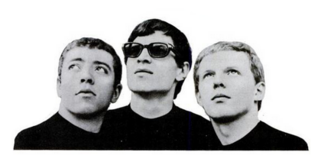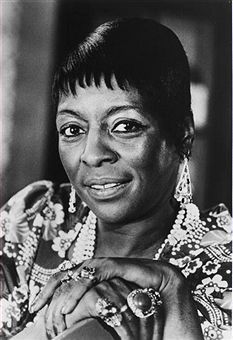Valiant Records was an independent record label distributed in the 1960s by Warner Bros. Records. The label was sold to Warner Bros. in 1967.

Sir John Edward Rowles is a New Zealand singer. He was most popular in the late 1960s, 1970s and early 1980s, and he is best known in New Zealand for his song from 1970, "Cheryl Moana Marie", which he wrote about his younger sister.
Jerry Neil Capehart was an American songwriter and music manager. Capehart co-wrote the songs "Summertime Blues" and "C'mon Everybody" with Eddie Cochran, whom he also managed. One of his most-recorded songs, "Turn Around, Look at Me," was a chart hit for Glen Campbell, the Lettermen, and the Vogues.

Roy Godfrey Phillips is a British musician. He was a member of The Soundtracks, The Saints and The Peddlers.
Lynne Randell was an English Australian pop singer. For three years in the mid-1960s, she was Australia's most popular female performer and had hits with "Heart" and "Goin' Out of My Head" in 1966, and "Ciao Baby" in 1967. In 1967, Randell toured the United States with The Monkees and performed on-stage with support act Jimi Hendrix. She wrote for teen magazine, Go-Set, and television programme guide, TV Week. While on the US tour, Randell became addicted to methamphetamine, an addiction which she battled for most of her life.

Lorraine Ellison was an American soul singer and songwriter known for her recording of the song "Stay with Me" in 1966.
Maggie Thrett was an American actress and singer.

Samoan-born Eliza Keil started out singing with her brothers in the popular New Zealand rock & roll group the Keil Isles and would later become a solo artist in her own right with a string of TV appearances and a part in a film.
Diane Marie Jacobs, known as Dinah Lee, is a New Zealand singer who performed 1960s pop and adult contemporary music. Her debut single from early 1964, "Don't You Know Yockomo?", achieved No. 1 chart success in New Zealand and in the Australian cities of Brisbane and Melbourne. It was followed in September by her cover version of Jackie Wilson's, "Reet Petite", which also reached No. 1 in New Zealand and peaked at No. 6 in Melbourne. The Australian release was a double A-sided single with "Do the Blue Beat". On her early singles she was backed by fellow New Zealanders, Max Merritt & His Meteors. Lee appeared regularly on both New Zealand and Australian TV variety programs, including Johnny O'Keefes Sing, Sing, Sing and Bandstand. She toured supporting Johnny O'Keefe, as well as Ray Columbus & the Invaders and P.J. Proby. According to Australian rock music journalist, Ed Nimmervoll, in the 1960s, "Lee was the most successful female singer in both her New Zealand homeland and Australia ... on stage and on record Dinah had all the adventure and exuberance for the time the boys had".
Diamond Records was a record label, based in New York City, which was founded in 1961 by former Roulette Records executive Joe Kolsky. Another Roulette exec, Kolsky's brother Phil Kahl, joined Kolsky in the venture the following year.
Impact Records was a California based record label run by CT Records creator, Tony Hilder in the 1960s. This label released some surf records by The Crestwoods, Dave Myers and The Surftones, The Ramblers and The New Breed and The Revels. The Revels were known for the hits "Comanche" and "Intoxica".
Dian Hart was a singer and recording artist who recorded during 60s and early 1970s. In the late 60s, things looked promising for her. Cashbox Magazine once commented that she sounded like a teen version of Petula Clark. She was also a well known attraction on the broadway and supper club circuit who appeared at venues such as the Palmer House in Chicago, the Fontainebleau Hotel in Miami, and New York's Waldorf. She had also worked as an actor.
Robert Hafner was an American record producer and songwriter who, along with Tony Hilder, was responsible for many of the surf records that came out in California in the 1960s including "Vesuvius" and "Intoxica" by The Revels. He also contributed to the music for the film The Exiles. Music historian and author Robert Dalley said that he had a definite place in surf history.
The Radars were a New Zealand group that was made up of mainly visually impaired musicians. They backed Deane Waretini on his no 1 hit "The Bridge" in 1981, and they won the Best Polynesian Album award at the 1983 New Zealand Music Awards. They played mainly around Auckland.
Nash Chase is a former pop singer from New Zealand who recorded for the Ode and HMV labels. He released a string of singles in the early 1970s. He is remembered for "What Greater Love", "Today I Killed a Man I Didn't Know" and "Anderson and Wise".
"What Greater Love" was a top ten hit in New Zealand for singer Nash Chase in 1970.
Pat Thomas was an American jazz singer from Chicago who had a hit with "Desafinado". She also recorded "The Long Long Night".
Claude Papesch was a blind multi-instrumentalist from New Zealand. He played with many New Zealand outfits as well as well known Australian blues groups, Chain and Savage Rose. He also was a solo artist and released recordings of his own. He has an important place in New Zealand rock & roll history.
"Do What You Gotta Do" is a song that was written by Jimmy Webb. It was first recorded by Johnny Rivers and released on his 1967 album Rewind. In 1968, it was an R&B hit for Al Wilson. It was also a hit for Nina Simone that year and a local hit for New Zealand band Larry's Rebels.





